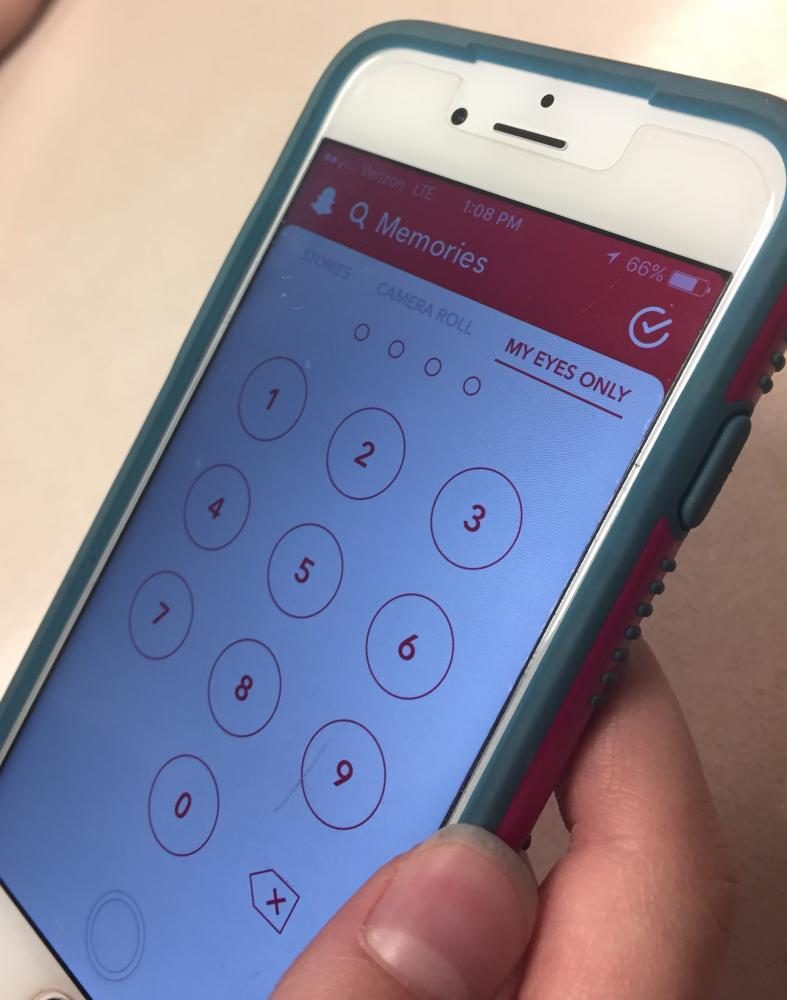Internet Safety a Risk Despite New Features
New social media features allow users to protect personal information.
June 6, 2017
Recently, the popular social media app Snapchat came out with a new feature called “My Eyes Only.” This feature allows users to save pictures taken on Snapchat to a folder, and lock the folder with a password, so only the user can see the pictures.
Features like “My Eyes Only” raise questions about internet safety; it is extremely hard to tell if something on the internet can truly be private. Despite the passwords and settings options on social media platforms, nothing is private once it is posted. Regardless of features such as “My Eyes Only,” users need to be careful about what they post on social media because their information is never completely private.
Many CHS students are on social media; Facebook, Snapchat, Instagram and Twitter are gaining more popularity from teens by the day. According to a Feb. 2017 survey from the tech website Statista, Snapchat leads as the most popular social media app among teenagers and young adults with a 79 percent usage rate, followed by Facebook, Instagram and Twitter.
Often when users create their accounts, they are asked for personal information such as their email address, age, birthdate and phone number. This personal information is very dangerous to share over the internet no matter what the social media site may say—the information is not private.
All of these social media platforms allow users to make their account private. This means that only the followers of the user can see their posts and profile.
According to the National Crime Prevention Council, even if a user has a private account, they can still be hacked and their personal information can be used for countless things such as identity theft.
Along with the “My Eyes Only” feature, Snapchat has other features such as “Find Friends,” which allows users to find their friends on Snapchat by letting the app access their contact list, which may seem to withhold the privacy of the user. However, any personal pictures placed in the secret folder will be saved on a server where they can be accessed, and Snapchat or hackers can collect private information through a user’s contacts.
According to a May 2014 article from ABC News, even if you delete a post off of Snapchat or another social media app, it still exists somewhere on the internet. It never completely disappears.
Facebook privacy settings provide another example of how easily information can be accessed. People the user may not know can see everything they post, even if they have a private profile. Anyone that is friends with one of the user’s friends can access and view the user’s post.
According to a June 2016 article from The Guardian, Facebook has seen a 21 percent reduction in users posting about their personal lives because more users are realizing just how little privacy they have on Facebook.
Although privacy is very important, people have revealed all kinds of personal information on social media and many never fall victim to identity theft or getting hacked. If a user reveals important information and nothing happens to them, it seems as though it should not be such a big deal to keep that information so secret.
However, even if nothing happens when a birthday, location or age is released, users never truly know who sees their information. Secret pictures or embarrassing memories that were once put on the internet and then deleted could appear again years later and hurt the user in multiple ways such as damaging reputations or future opportunities.
According to a study from the Carnegie Mellon Cylab, the chance that one will be a victim of identity theft is 51 more times likely for kids under 18 years old than for their parents.
In order to practice internet safety, when a student creates a social media account, they should automatically turn on any privacy settings and only share the information that is absolutely necessary. Students should also think carefully before posting or sending something through social media. This will keep them safe and protected from identity theft, hackers, and more.


